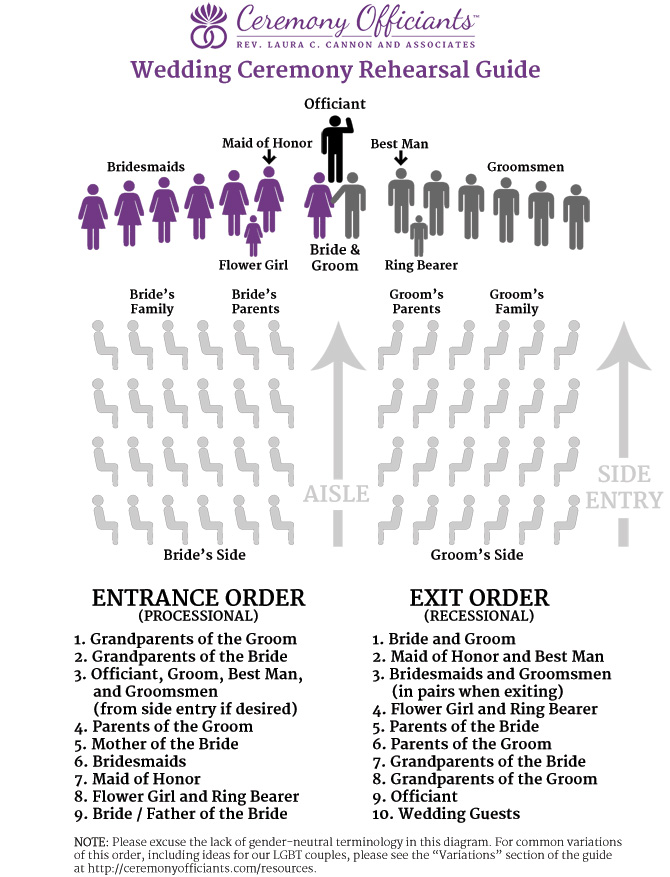Planning your dream wedding is an exciting journey filled with anticipation and joy. As you navigate the world of dresses, venues, and guest lists, it’s crucial to understand the legal and religious requirements for marriage. These guidelines ensure your union is recognized both legally and spiritually, creating a foundation built on respect and tradition. This comprehensive guide will delve into the intricacies of legal and religious marriage requirements, empowering you to make informed decisions that align with your beliefs and aspirations.
This article will explore the essential legal documents needed for a valid marriage, delve into the diverse traditions and practices of various religions, and provide insights into choosing the perfect officiant for your ceremony. We’ll also examine different wedding ceremony types and highlight popular traditions and customs to inspire your celebration. By the end of this guide, you’ll have a clear understanding of the steps involved in securing a legally and religiously recognized marriage, allowing you to focus on creating a truly unforgettable day.
Legal Requirements for Marriage
Before exchanging vows, it’s essential to understand the legal framework surrounding marriage in your jurisdiction. Legal requirements vary by state or country, but generally include obtaining a marriage license and adhering to specific age restrictions and residency requirements.
Marriage License: This official document, issued by the local government, grants permission for you and your partner to legally marry. The application process typically involves providing identification, proof of age, and completing an application form. There may be a waiting period after applying before the license is issued.
Age Restrictions: Most jurisdictions set a minimum age for marriage, often 18 years old. Some states allow minors to marry with parental consent or judicial approval under specific circumstances. It’s crucial to research the age requirements in your area to ensure you meet the legal criteria.
Residency Requirements: Some states require couples to reside within the state for a certain period before applying for a marriage license. This residency requirement can vary, so it’s important to check with your local government office for specific details.
Religious Marriage Requirements

While legal requirements establish the framework for a legally recognized marriage, religious ceremonies often incorporate additional traditions and practices that hold deep spiritual significance.
Religious Officiant: Most religions require a designated officiant, such as a priest, rabbi, imam, or minister, to perform the marriage ceremony. This individual is authorized by their respective faith to solemnize unions and pronounce couples as husband and wife according to religious doctrine.
Premarital Counseling: Many religions encourage premarital counseling sessions for couples to discuss their beliefs, values, and expectations for marriage. These sessions can provide guidance and support as they prepare for the lifelong commitment of marriage.
Religious Rituals and Vows: Religious ceremonies often involve specific rituals, readings, and vows that reflect the faith’s teachings and traditions. Couples may choose to incorporate symbols, prayers, or blessings that hold personal meaning within their religious context.
Choosing an Officiant
Selecting the right officiant is a crucial decision as they will guide your ceremony and personalize it with their unique style and perspective.
Religious Affiliation: If you desire a ceremony rooted in your faith, choose an officiant who belongs to your denomination or spiritual tradition. They will be familiar with the rituals, prayers, and doctrines that are important to you.
Personal Connection: Consider an officiant with whom you feel comfortable and connected. They should understand your values and vision for the ceremony, allowing them to create a meaningful and authentic experience.
Communication Style: Assess the officiant’s communication style and ensure it aligns with your preferences. Some officiants are more formal, while others adopt a more casual approach. Choose someone who can effectively convey the significance of the occasion while making you feel at ease.
Wedding Ceremony Types

Wedding ceremonies come in various styles, reflecting diverse cultural traditions and personal preferences.
Traditional Ceremony: This classic format often includes elements such as processional music, readings from religious texts, vows exchanged before an altar, and a symbolic unity ceremony. It typically adheres to established rituals and customs within a specific faith or tradition.
Non-Religious Ceremony: Secular ceremonies focus on the couple’s love and commitment without incorporating religious doctrines or rituals. They often feature personalized vows, readings chosen by the couple, and symbolic gestures that reflect their shared values and beliefs.
Destination Wedding: These ceremonies take place in exotic locations, offering a unique and memorable backdrop for the celebration. They may incorporate local customs and traditions, creating a fusion of cultures and experiences.
Traditions and Customs
Throughout history, weddings have been adorned with rich traditions and customs that symbolize love, unity, and prosperity.
Wedding Rings: The exchange of rings is a universal symbol of commitment and eternal love. Rings are often made of precious metals like gold or platinum and engraved with personal messages or symbols.
Bridal Veil: In many cultures, the bride wears a veil as a symbol of purity, modesty, and protection. It can be adorned with lace, pearls, or other embellishments to enhance its beauty and significance.
Wedding Cake: The cutting of the wedding cake is a tradition that symbolizes good luck and prosperity for the newly married couple. Cakes are often multi-tiered and decorated with intricate designs, reflecting the couple’s style and preferences.
Conclusion
Navigating the world of legal and religious marriage requirements can seem daunting, but by understanding the essential guidelines and traditions, you can create a truly meaningful and unforgettable celebration. Remember to choose an officiant who resonates with your beliefs and vision, personalize your ceremony with unique rituals and vows, and embrace the rich tapestry of traditions that have been passed down through generations. With careful planning and attention to detail, your wedding day will be a testament to your love, commitment, and shared journey as you embark on this exciting new chapter together.



